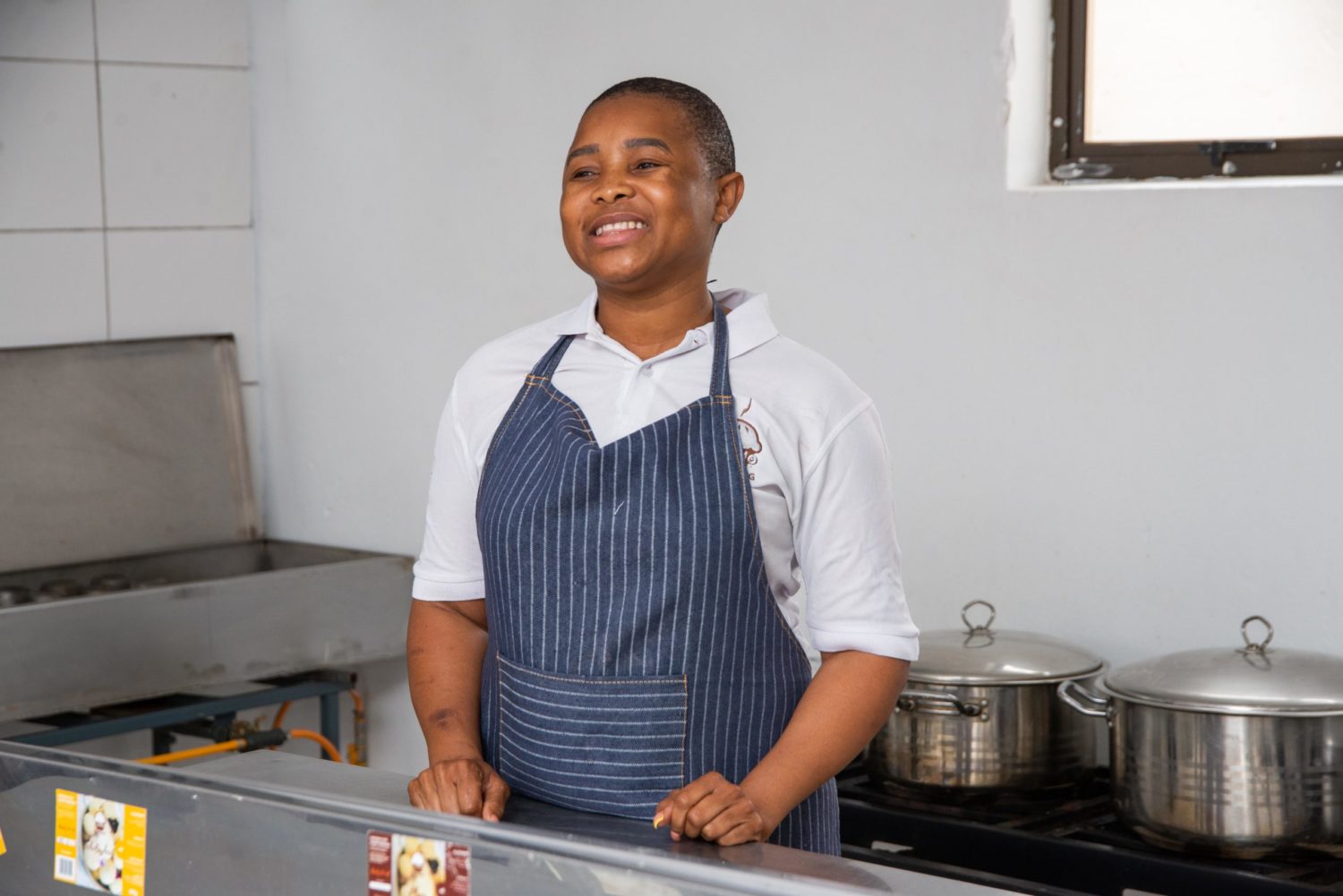Onwards and upwards: A year of advocacy to tackle gender stereotypes
Senior Advocacy Advisor, Sini Maria Heikkila, reflects on our recent advocacy work.

Throughout the last year, we have been working to break down the barriers that hold women entrepreneurs back, with a key focus on tackling gender stereotypes. In this blog, our Senior Advocacy Advisor, Sini Maria Heikkila, shares her reflections on the progress we’ve made so far and what’s next for our advocacy work.
Gender stereotypes and social norms fuel gender inequality, yet little attention has been placed on how they undermine women’s opportunities in entrepreneurship and wider economic participation.
At the Foundation, we decided to prioritise policy and advocacy to tackle gender stereotypes last year. Exactly a year ago the Foundation published a thematic policy report ‘Gender Stereotypes and Their Impact on Women entrepreneurs’ exploring how gender stereotypes significantly shape women’s journeys to and through entrepreneurship by affecting their aspirations, sources of support, opportunities, access to resources, perceptions and the wider ecosystem where business operate. The report was based on responses from over 200 women entrepreneurs across 42 countries.
The findings showed that gender stereotypes undermine women’s opportunities as entrepreneurs in many ways. In fact, 70% of the respondents said that gender stereotypes have negatively affected their work as entrepreneurs and 60% of respondents believe that gender stereotypes impact their business growth.
Read our report on Gender Stereotypes and Their Impact on Women Entrepreneurs
Download the report (2.9MB pdf)
DownloadTackling gender stereotypes as part of the Foundation’s advocacy
Since the publication of the report, we have highlighted the importance of tackling gender stereotypes affecting women entrepreneurs in low and middle income countries and shared our policy recommendations through numerous policy forums.
For instance, in November 2021 we dedicated our first ever global summit, Women Entrepreneurs Mean Business, to explore and challenge the gender stereotypes holding women entrepreneurs back from success and equality. We also took our concerns to the United Nations. Together with the Permanent Mission of Rwanda to the UN, Permanent Mission of Sweden to the UN and Permanent Mission of the Philippines to the UN, we convened a high level side-event to explore gender stereotypes and their impact on women’s entrepreneurship as part of the 66th Commission on the Status of Women (the largest intergovernmental gathering dedicated to promoting women’s rights), which took place in March 2022.
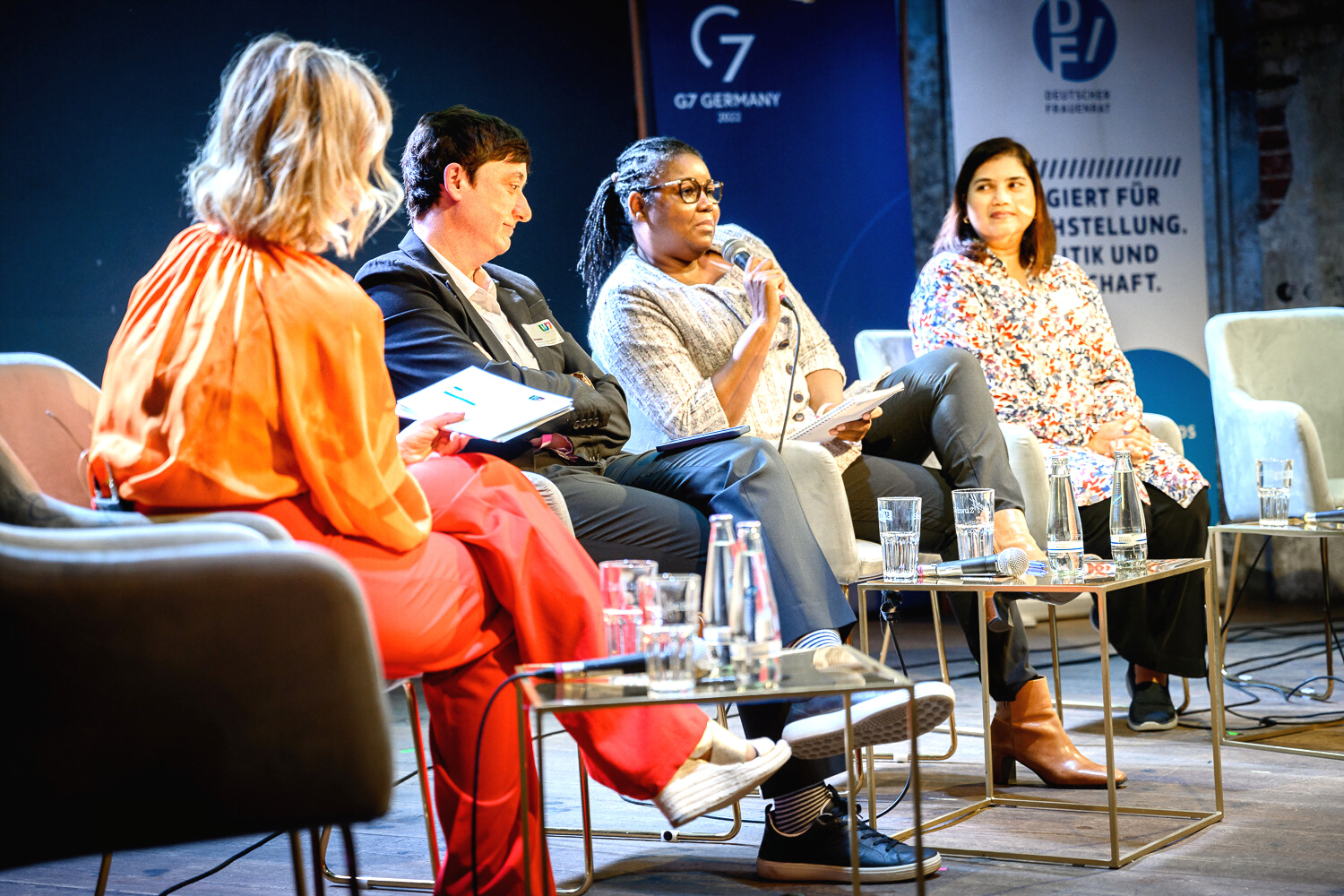
Furthermore, we have shared our calls to action with the G7 leaders, Commonwealth Heads of State as well as numerous other policy makers such as senior officials in the UN bodies, international financial institutions and development banks. It was positive to see both the CSW final agreed conclusions as well as the G7 communiqué including strong commitments to addressing harmful social norms and gender stereotypes. Now we are waiting for stronger action to deliver on the commitments. Read our reflections on their commitments here.
Using social media, public op-eds and blog posts such as this have also proven to be important ways to draw attention to the issue, which has not received the political commitment and attention it requires in the past.
It was positive to see both the CSW final agreed conclusions as well as the G7 communiqué including strong commitments to addressing harmful social norms and gender stereotypes. Now we are waiting for stronger action to deliver on the commitments.
What next? Plans for 2023
Tackling gender stereotypes as a root cause for gender inequality remains critical.
At the moment, the Foundation is building policy evidence to address unpaid care work that affects women entrepreneurs. Caring for people and domestic work – such as cooking or cleaning –contribute to wellbeing and functioning of individuals, society at large and the market economy alike.
Today, women and girls undertake over three quarters of all unpaid care work globally. This is one of the key barriers to women’s economic empowerment -including entrepreneurship and wider labour market participation. For instance, it gives women less time to work outside home, to participate in education or training or even rest.
Gender stereotypes and social norms around the responsibility for paid and unpaid care work are widespread. A recent study from the UN Women surveying gender equality attitudes in 20 countries2 shows that at least 48% of respondents believe a man’s job is to earn money while a woman’s is to look after the house and family; 74% believe women should work less and devote more time to caring for their family, and 61% agree it is natural for men to earn more than women.
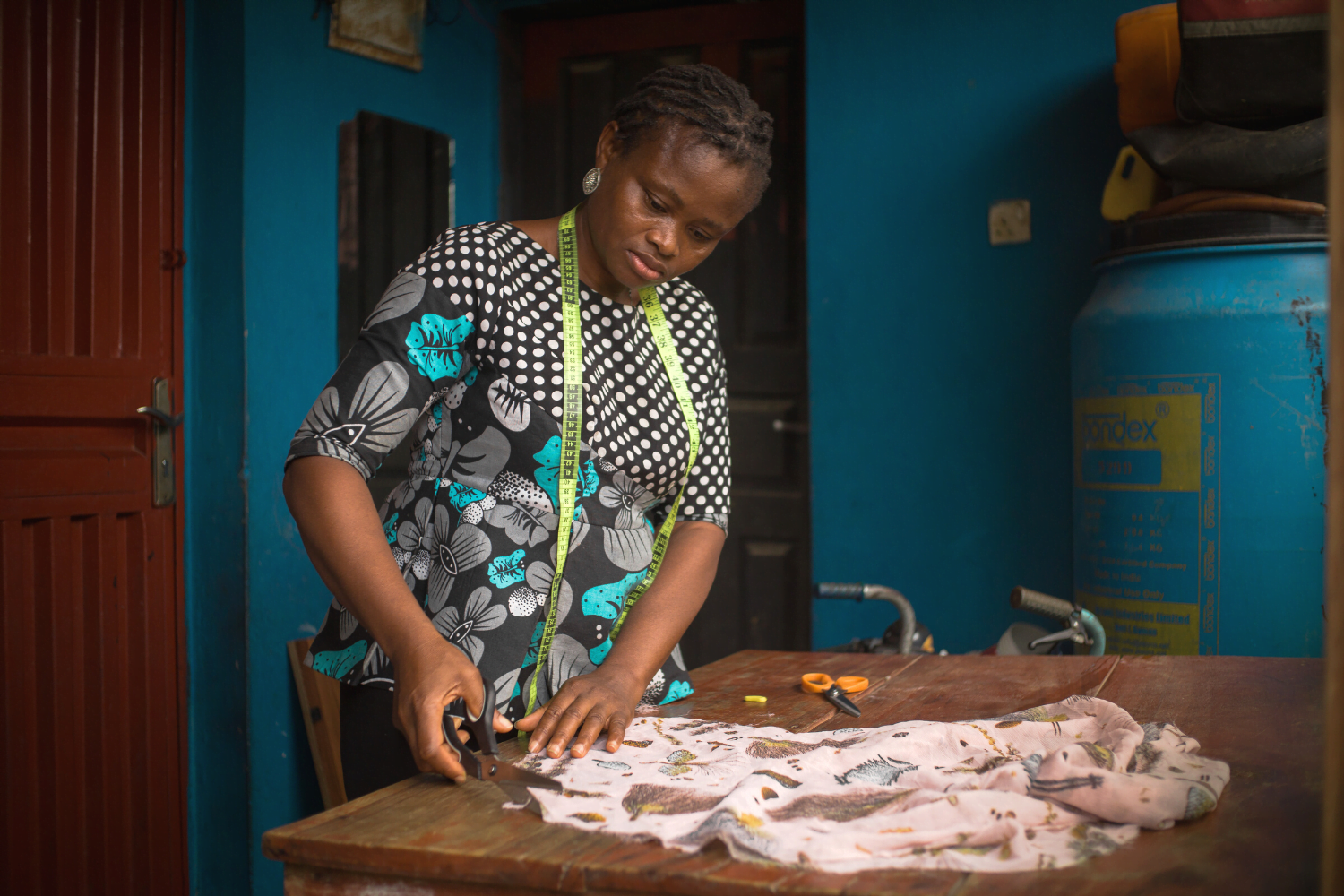
At the Foundation, we are committed to our work to tackle gender stereotypes. We will be launching our new advocacy strategy early next year and it is clear that tackling gender stereotypes and social norms affecting women entrepreneurs will remain a key priority area for our advocacy and policy work for the next 3 years as well.
I look forward to building partnerships and pooling expertise, relationships, knowledge, strategies – and feminist activism – with other organisations, policy makers, and corporates working in this critical area. This work may not be easy or quick – but it is crucial to achieve gender equality in entrepreneurship and economic opportunities.
Learn more about our advocacy work
-
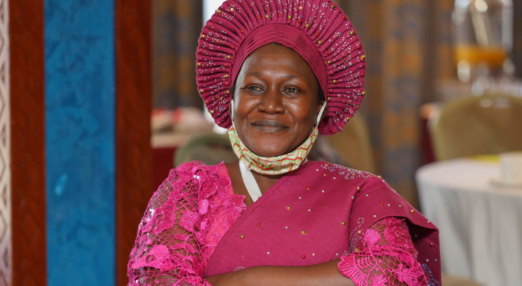
Promising results from G7 Summit as leaders strengthen their commitments to women’s rights
G7 leaders have published a communiqué, with concrete commitments to women's empowerment.
Read more
-
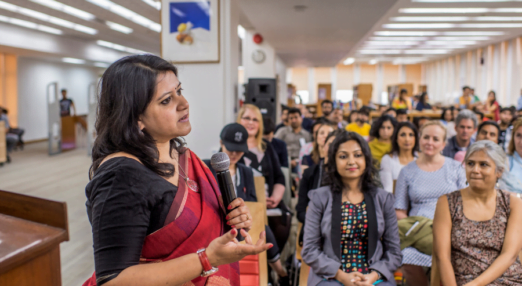
G7 leaders must prioritise women’s empowerment at this year’s Summit
Fundamental changes must be made at a global level and across societies to dismantle the gendered barriers holding back women entrepreneurs.
Read more
-
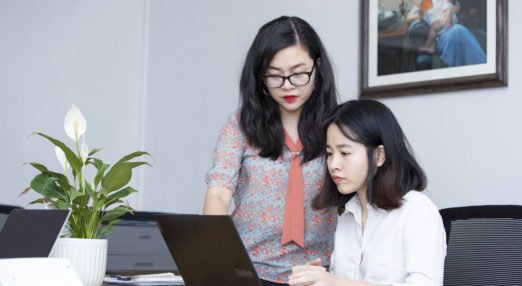
Elevating Women’s Rights in the G7 Agenda
In June, the G7 will meet to make policy decisions on issues including women’s rights. Here's how we'll be pushing for women's entrepreneurship to be high on the agenda.
Read more
Pressing for change
We listen to women entrepreneurs. We do research and gather insights from our programmes in low and middle income countries. And we share our evidence to inform global and national policy making processes.
Learn more